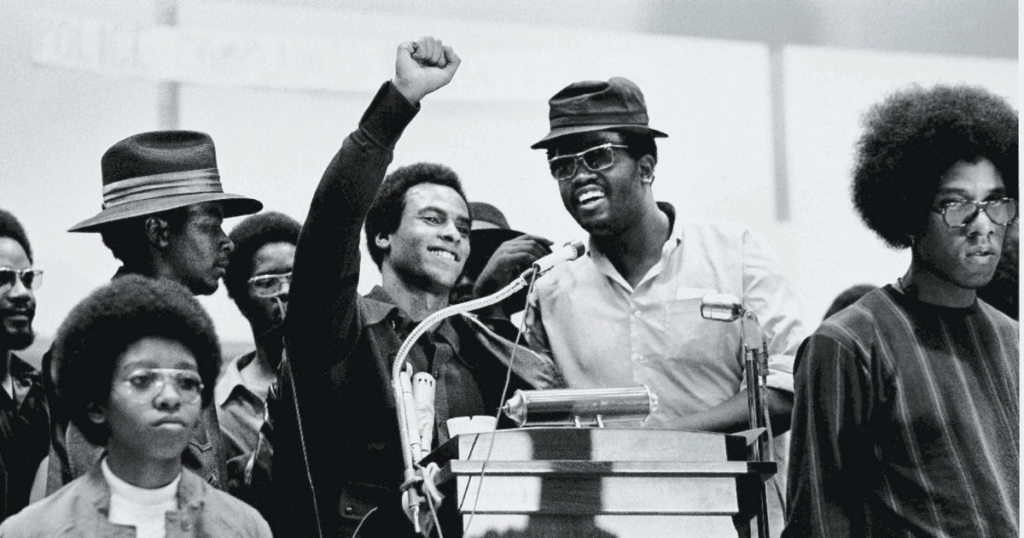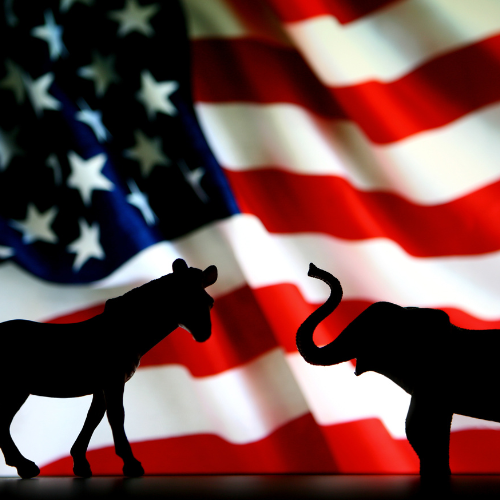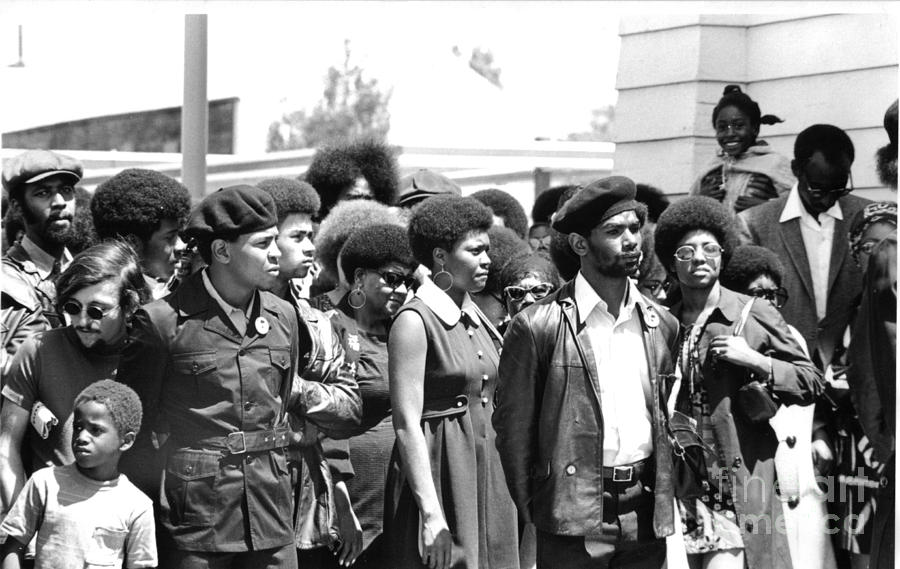
Opinion: The Black Panthers Had the Right Idea for People Power
By GO HumanityBlue States. Red States. What does that even mean when all across the nation people suffer in so many areas of life?
Let’s “define” red or blue for a moment for clarity. Red is for the Republican party while blue is for the Democratic party.
 To go a step further, the Republican Party is often characterized as such: the Republican Party supports owners of big businesses, corporations, and industries. It often tends to oppose government spending on what it views as “welfare” (i.e., helping the poor, people without jobs, Medicare, etc). It represents a wide range of opinions against various issues: same sex marriage, critical race theory, and more. Its beliefs tend to range from fairly conservative to very right wing. In addition, it is sometimes called the GOP (Grand Ole Party) and is symbolized by the elephant.
To go a step further, the Republican Party is often characterized as such: the Republican Party supports owners of big businesses, corporations, and industries. It often tends to oppose government spending on what it views as “welfare” (i.e., helping the poor, people without jobs, Medicare, etc). It represents a wide range of opinions against various issues: same sex marriage, critical race theory, and more. Its beliefs tend to range from fairly conservative to very right wing. In addition, it is sometimes called the GOP (Grand Ole Party) and is symbolized by the elephant.
The Democratic Party tends to support poor people by wanting to spend more money on education, health, and overall welfare of the people. Democrats support education critical of colonialism, same sex unions, and allegedly oppose special interests and big business. Its symbol is the donkey.
The above “definitions” of each party are pretty general and only give a basic glimpse. However, if one follows local, state, and federal news at any time, you can find the summation somewhat indicative. However, if one follows not only news but real life stories and events, the blended concepts of each party’s platforms are undeniable.
Both political parties have failed their citizens repeatedly. Even though the Democratic Party has championed itself to represent equality, etc., it stalls each chance it has to empower impoverished communities. For example, housing is a crisis nationwide, even in Democratic-led states!
A Shelterforce article sums it up nicely:
“From the national level to the local level, the Democratic Party’s housing policies have turned to the privatization of low-cost housing in lieu of the U.S. Department of Housing and Urban Development’s public housing program and the deregulation of zoning laws instead of comprehensive planning. This approach was previously called Reaganomics, but it is now bipartisan. Applied to housing, it relies on private developers, not housing authorities, to build low-cost housing in exchange for lucrative increases in zoning and tax breaks. It is peddled through the (mistaken) story that these policies increase the production of private sector housing, including a small number of low-cost housing units. Some analysts consider these updated versions of Reaganomics to be responsible for the current housing crisis.
The results of these housing policies are painfully visible. Assisted by city hall, real estate speculation is widespread and highly profitable. Meanwhile, the assorted justifications for these giveaways survive on faith, devoid of evidence. Transit ridership and the supply of low-priced housing continues to decline, while inequality and homelessness rise- this is the shameful legacy of Democratic several democratic leaders, even though this trickle-down approach to housing originated with the Nixon and Reagan administrations it now lies within the democratic policy structure–even under the Biden Administration.”
This is only a small snippet of the fusion politics of the Repubacrats that cause poverty, death, and insult daily.
What if there was a template that placed the power in the hands of the people? Back in the 60’s, the Black Panther Party endeavored to enact such a plan of action. Principles that would liberate and give power to those who were powerless.

Photo: “Black Panther Party for Self-Defense” by Harold Alder
The BPP was a revolutionary political organization that provided socio-economic capital and aided in the allocation of resources for underserved Black and poor communities — by any means necessary. At its inception in 1966, the goal was to provide community protection against brutality from the Oakland police department. As the organization grew, founders Huey P. Newton and Bobby Seale recognized the collective power of organizing, and in 1967 created “The Ten-Point” Program — a model that would guide the work of the BPP and establish them as a national political organization for community improvement and empowerment:
The 10-Point Program
- We want freedom. We want power to determine the destiny of our Black Community.
- We want full employment for our people.
- We want an end to the robbery by the white men of our Black Community. (Later changed to “We want an end to the robbery by the capitalists of our Black and oppressed communities.”)
- We want decent housing, fit for shelter of human beings.
- We want education for our people that exposes the true nature of this decadent American society. We want education that teaches us our true history and our role in the present-day society.
- We want all Black men to be exempt from military service.
- We want an immediate end to POLICE BRUTALITY and MURDER of Black people.
- We want freedom for all Black men held in federal, state, county and city prisons and jails.
- We want all Black people when brought to trial to be tried in court by a jury of their peer group or people from their Black Communities, as defined by the Constitution of the United States.
- We want land, bread, housing, education, clothing, justice, and peace.
When reading this platform, it is sad to know that oppressed voices still need and demand these rights.
As we enter this new year, the people of this nation must support and embrace the work of mutual aid groups that endeavor to cultivate people power.
Collectively, we must work to change the circumstances of vulnerable people. Like the BPP, many mutual aid groups have only limited resources. However, the work can and will be done.
Robin Harris is an activist for Black, LGBTQIA, low-income, and other marginalized people. She is an organizer for Central Florida Mutual Aid and collaborates with GO Humanity service team Orlando Oasis on disaster recovery.
GO Humanity organizes poverty alleviation efforts around the globe with an emphasis on empowering vulnerable communities.
